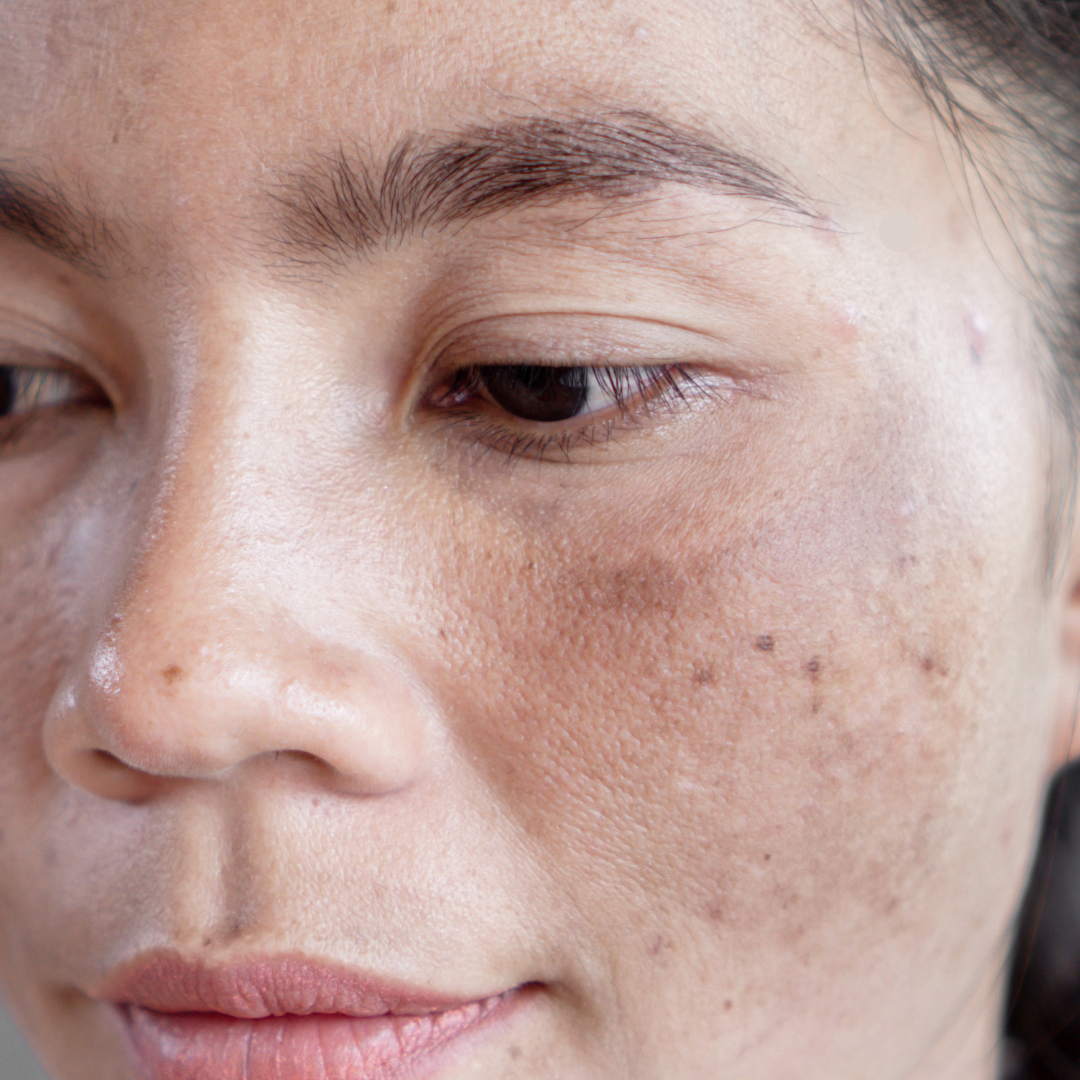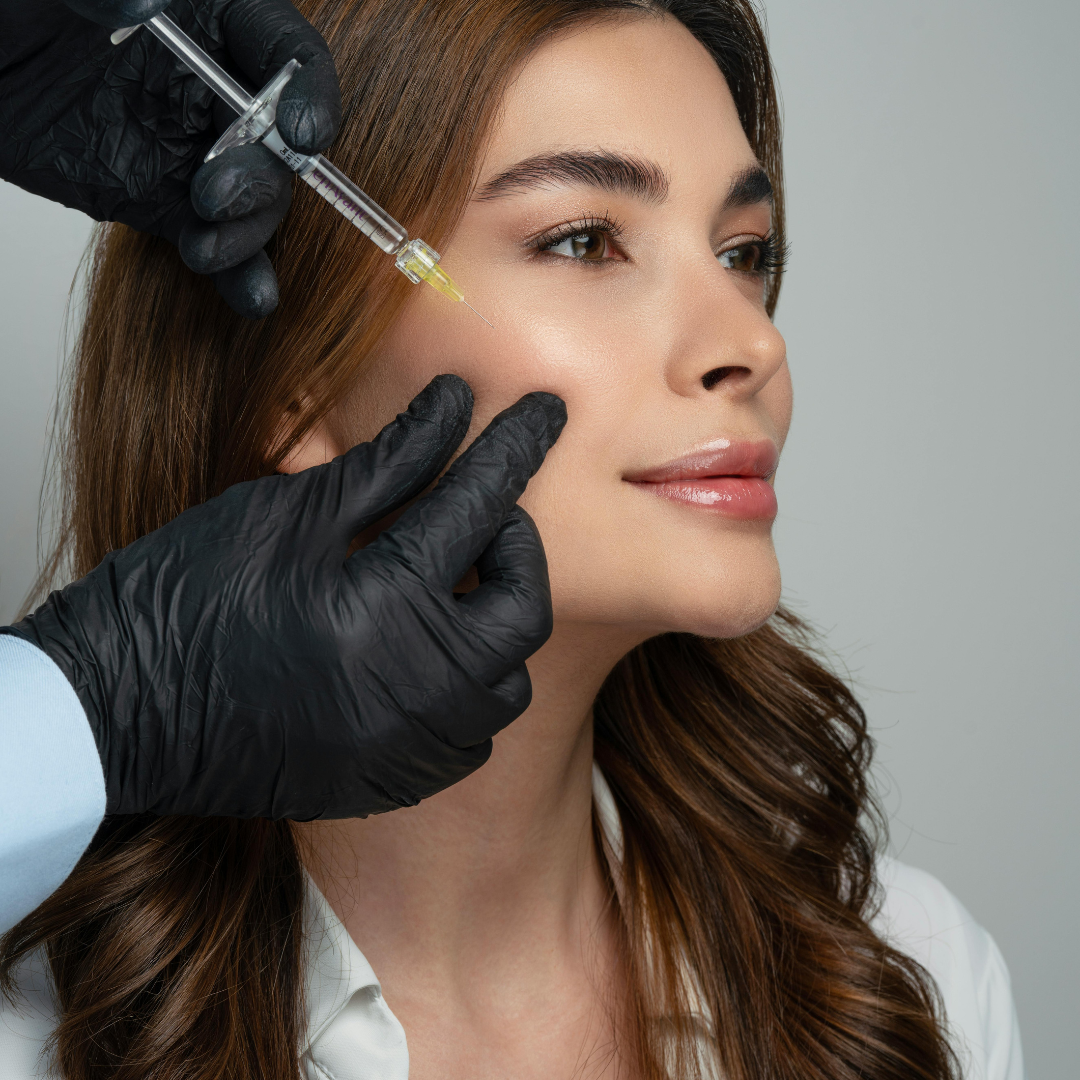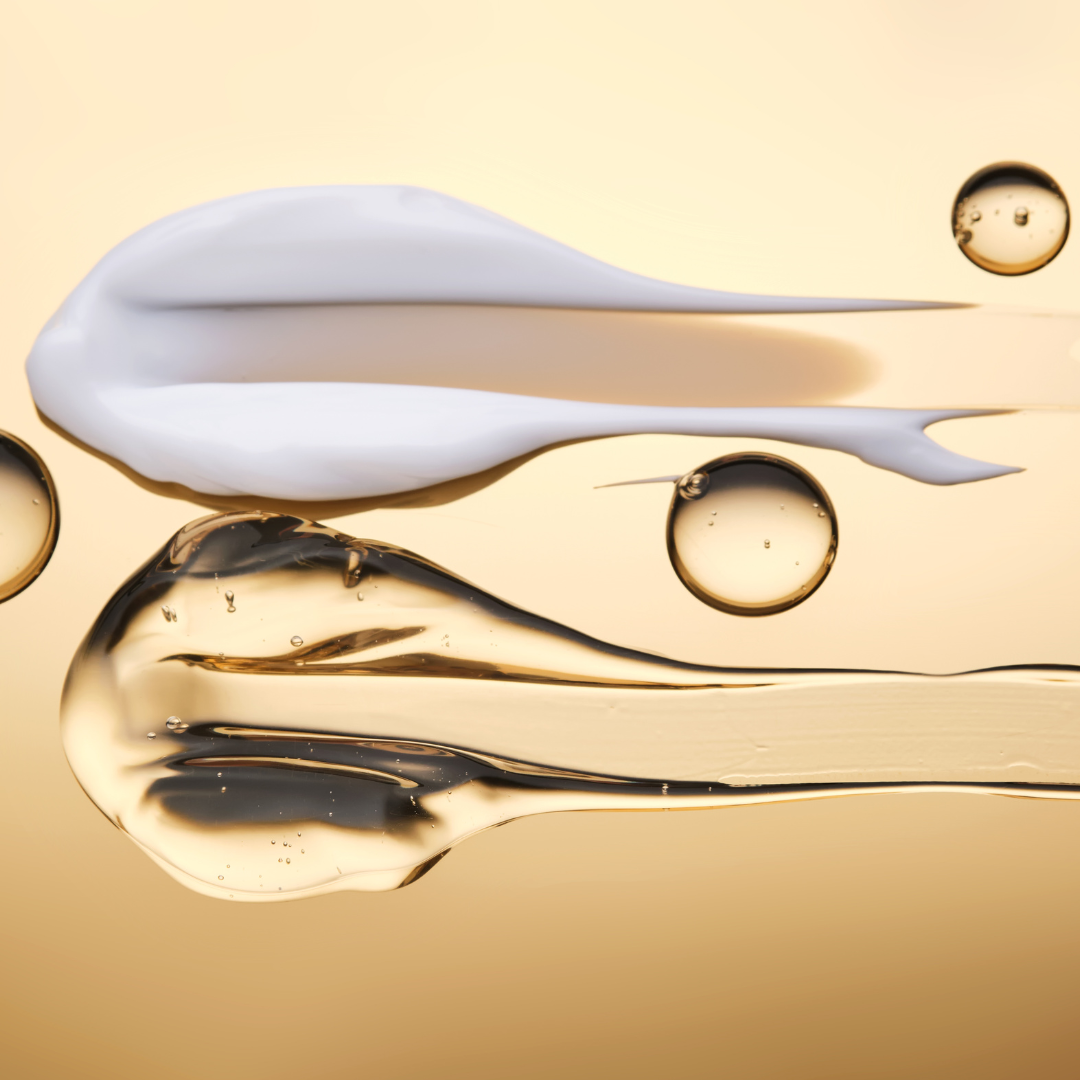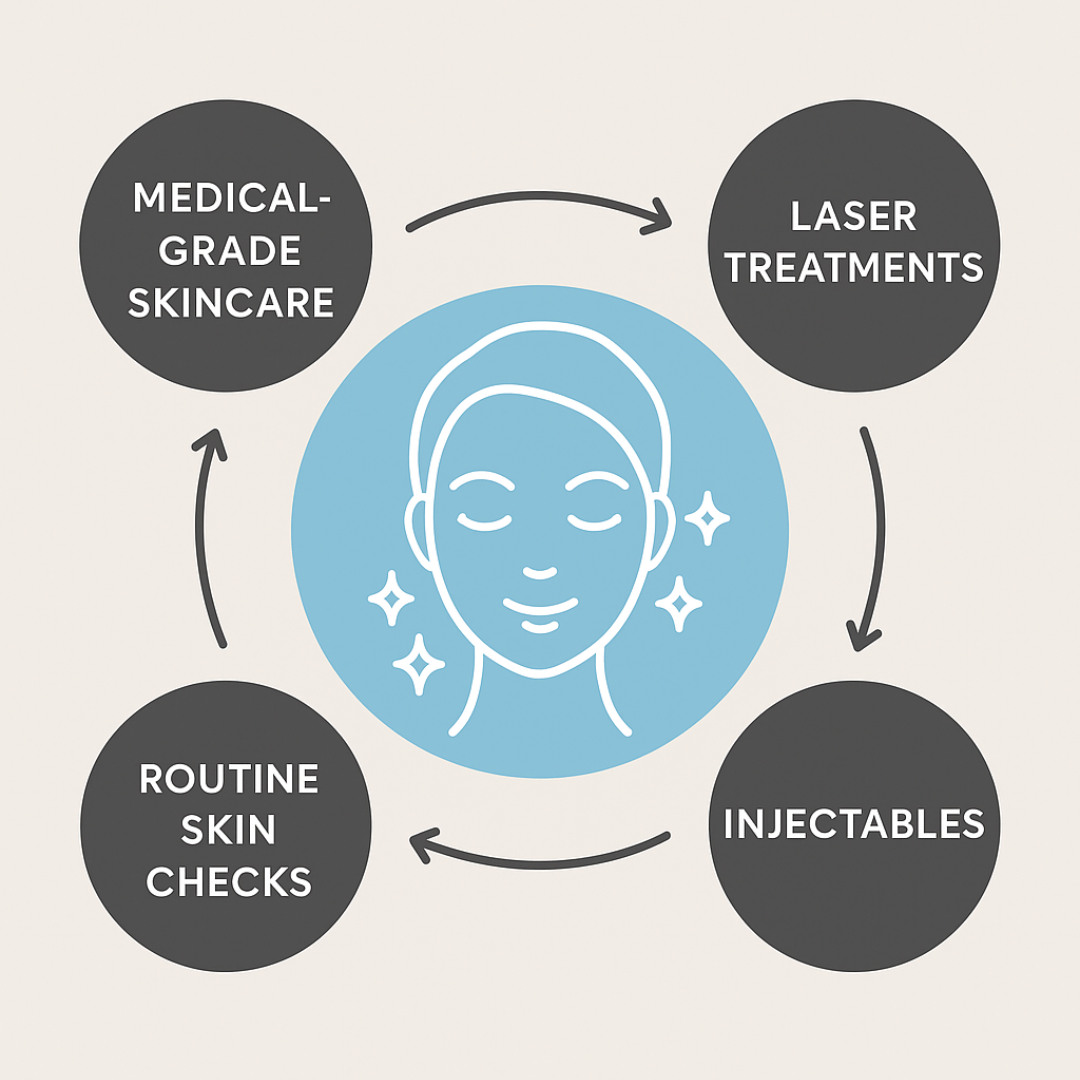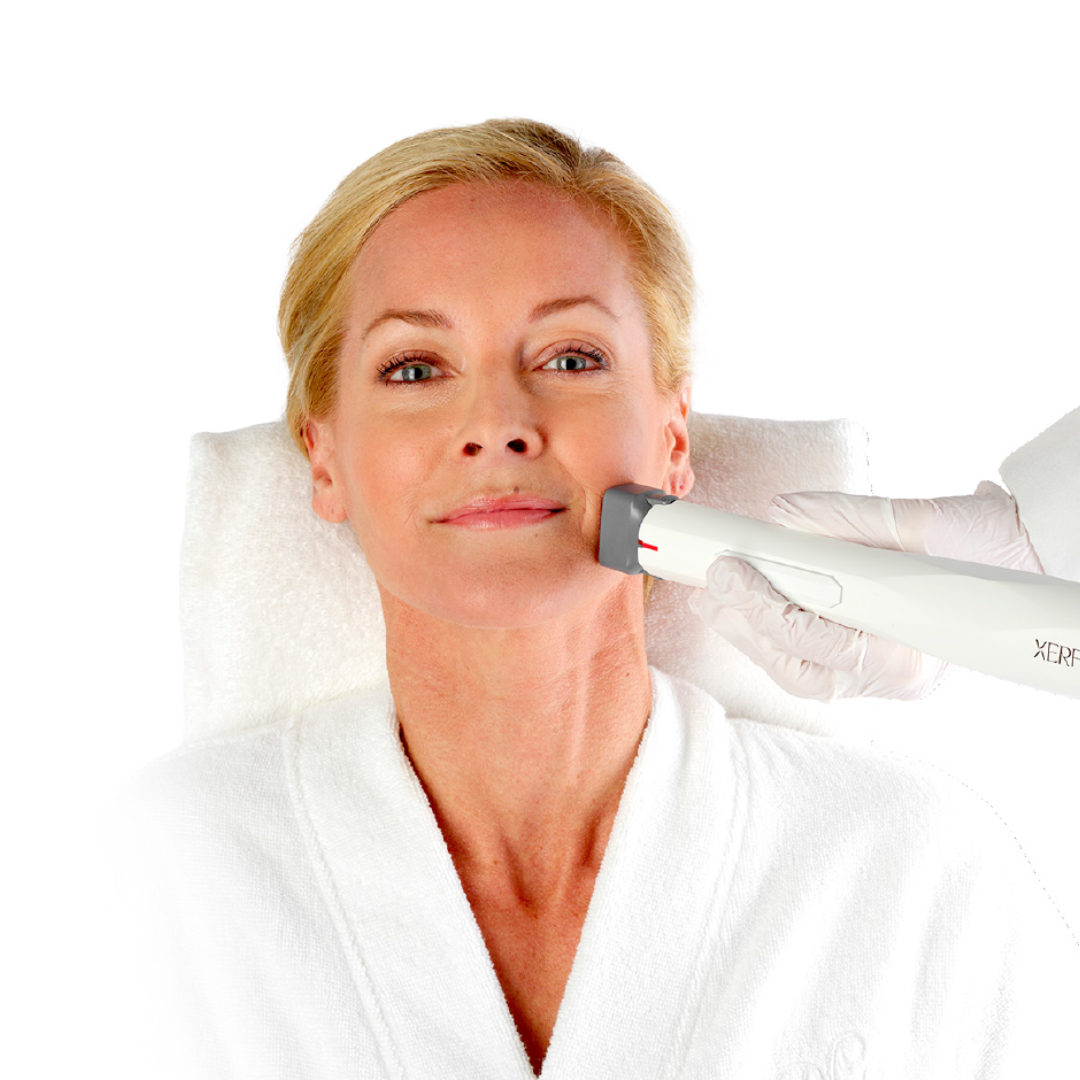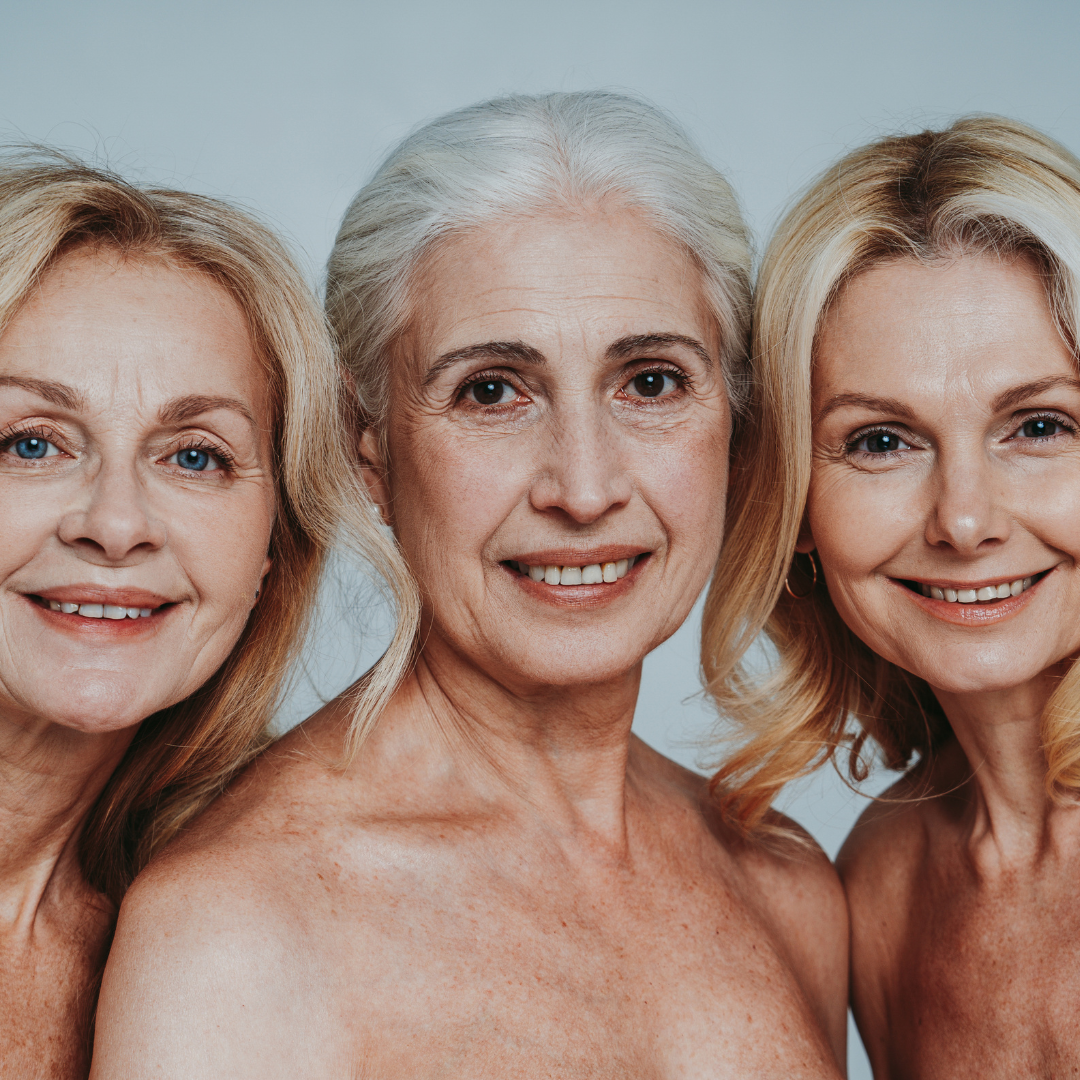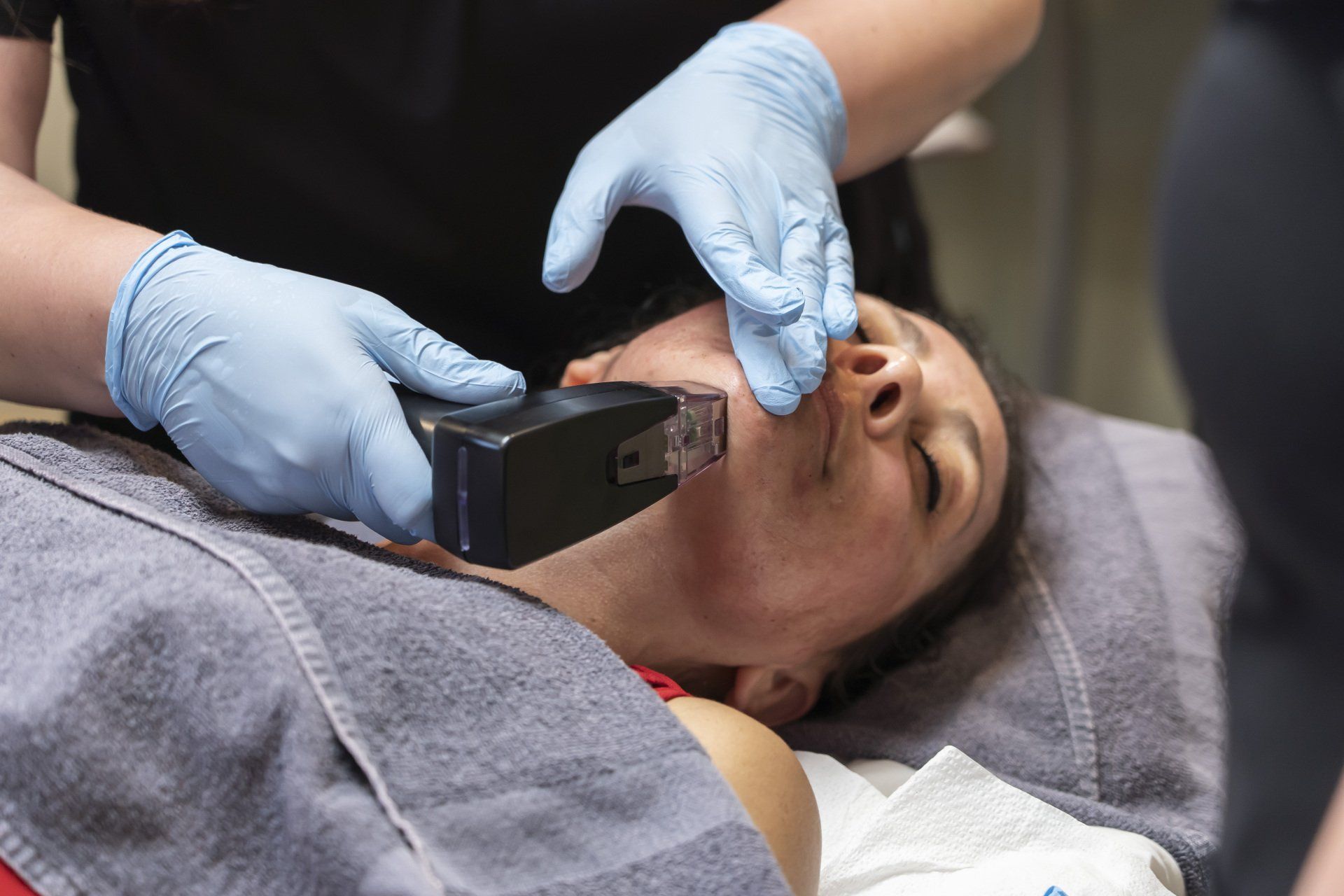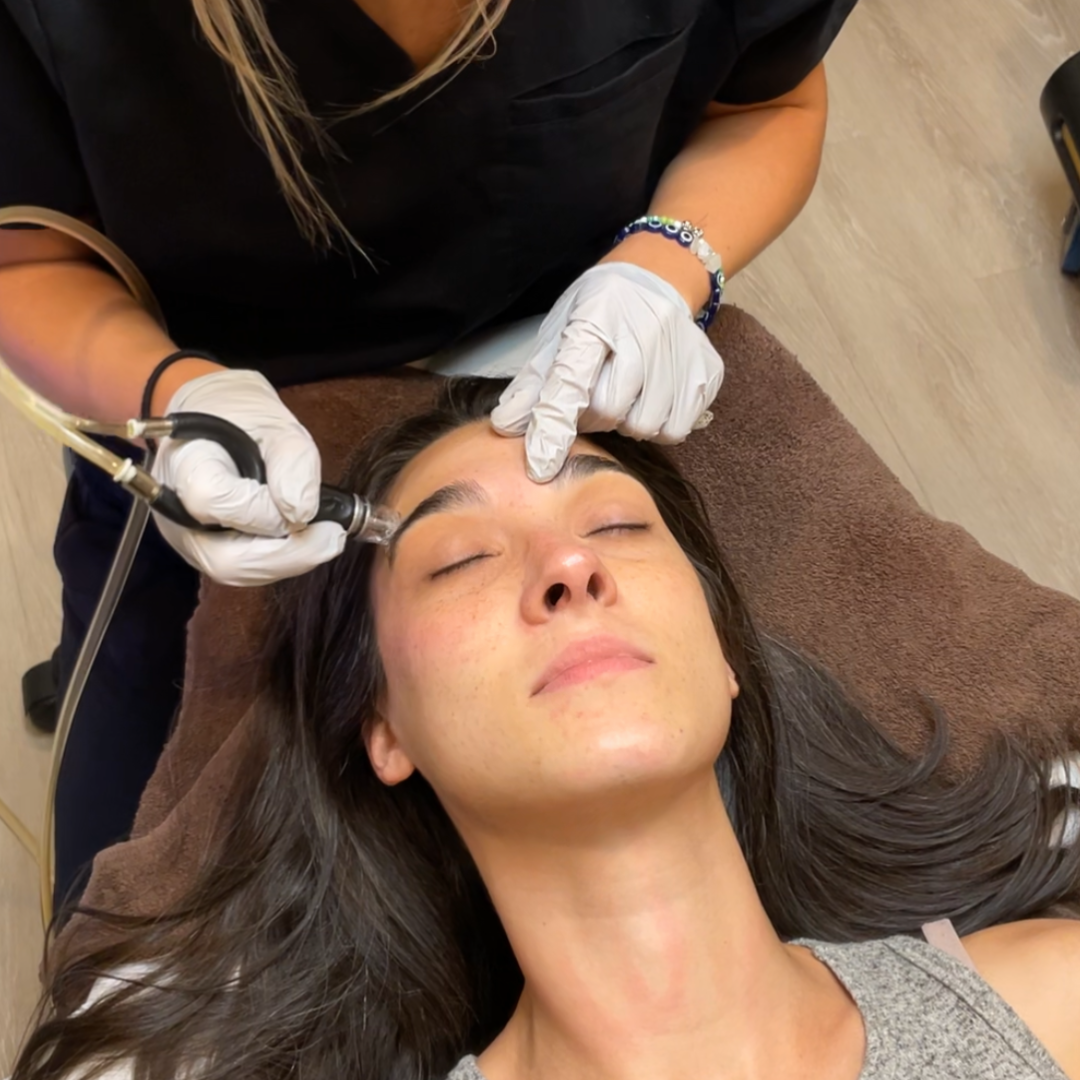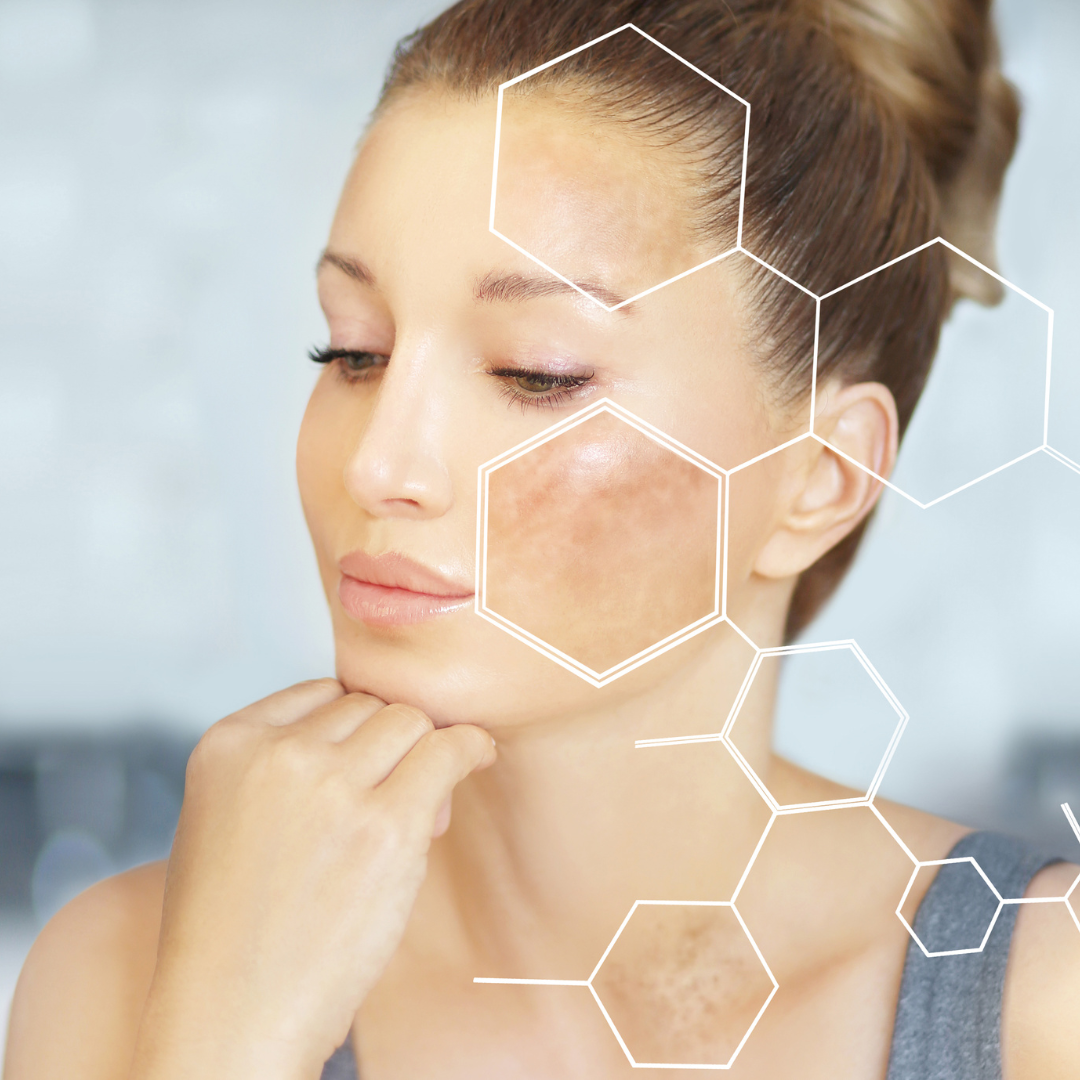How Likely Are You To Get Skin Cancer?
Did you know the likeliness of you getting skin cancer can be based on your skin type? Gaining a better understanding of your skin type is a great way to be preventative. While learning about your skin’s specific needs to achieve a healthier, more radiant complexion, Dermatologists prefer to use the Fitzpatrick scale to classify a person's complexion in relation to their tolerance of sunlight, and therefore, determine the likelihood of developing skin cancer. Fitzpatrick skin types are determined by the amount of melanin, or pigment, found in a person’s skin.
Where Do You Fit On The Fitzpatrick Scale?
The Fitzpatrick scale classifies skin types into six categories according to how they react to the sun (UV exposure):
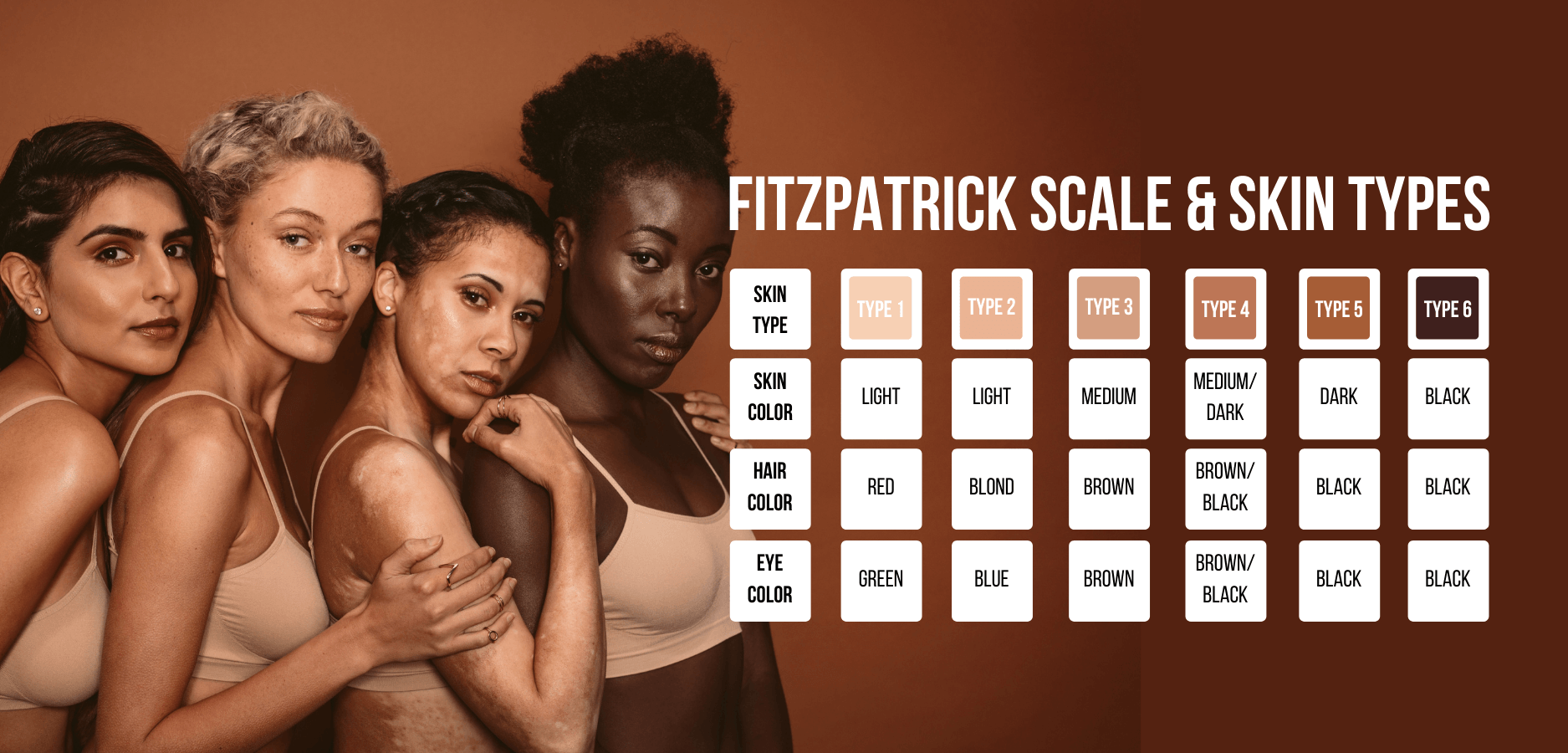
Heads up to our fair skin friends. Those with fair skin are at the highest risk for skin cancers and sun damage, which means it’s important to protect your skin well with quality sun care products. When looking for medical grade sunscreens we have your covered. Feel free to reach out to our staff regarding which of our in-house options would be the best fit for you, including trusted brands such as Alastin, Skinbetter and Avene.
How to Determine Skin Type
Now that you’re aware of the different Fitzpatrick skin types, diving into “your” specific skin type can allow you to be safe and proactive. Unfortunately there’s more to the scale than just saying “I have blond hair and blue eyes so I’m Type 2.” Take this quick and simple quiz below to indicate your personal skin type. Simply track the number of points you receive for each answer to see where you fall within the Fitzpatrick skin scale.
What is your eye color?
0-Blue, gray, green (pale shades)
1-Blue, gray, green (darker shades)
2-Blue or hazel
3-Dark brown or hazel
4-Brownish black
What is your natural hair color?
0-Red or pale blonde
1-Blonde
2-Dark blonde to light or reddish-brown
3-Brown to dark brown
4-Black
What best describes your skin tone before sun exposure?
0-Very pale, white, with reddish undertones
1-Very pale
2-Pale with some brown or olive tones
3-Light brown or darker olive tones
4-Dark brown to black
Do you have freckles?
0-Numerous freckles on both frequently sun-exposed and unexposed areas
1-Several freckles on both frequently sun-exposed and unexposed areas
2-Few freckles mainly on frequently sun-exposed skin with a few appearing on unexposed areas
3-Very few freckles typically on frequently sun-exposed areas of skin
4-No freckles
Does your skin burn?
0-Burns quickly and severely with significant redness, pain, blistering, and peeling
1-Some burning with blistering and peeling after extended sun exposure
2-Sometimes burns and peels usually with prolonged sun exposure without appropriate sun protection
3-Rarely burns
4-Never burns
Does your skin tan?
0-Skin rarely or never tans
1-May tan lightly after burning
2-Tans readily but may also burn
3-Tans readily and rarely burns
4-Tans deep brown or black quickly
Results: Find Your Skin Type!
Type1: 0-7 points
Type2: 8-13 points
Type3: 14-21 points
Type4: 22-27 points
Type5: 28-34 points
Type6: 35 or more points
The Fitzpatrick scale is a useful system to predict a patient’s level of risk for sun damage and skin cancer. Knowing your Fitzpatrick skin type in conjunction with whether you have oily or dry skin will be a helpful guide in establishing a skincare routine. In addition to assessing your risk for skin cancer, knowing your Fitzpatrick Skin Type can also help you understand how you’ll respond to certain dermatological procedures, as some cosmetic procedures have to be tailored based on your skin type. Now that you have a better understanding of your Fitzpatrick skin type and the level of risk for potential skin cancer, you can work with your dermatologist to take the necessary steps to protecting your skin!
Share this article with friends!
